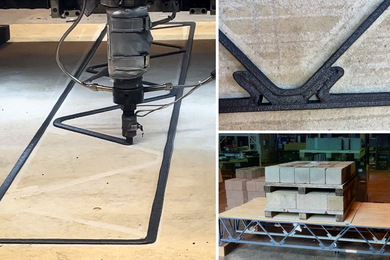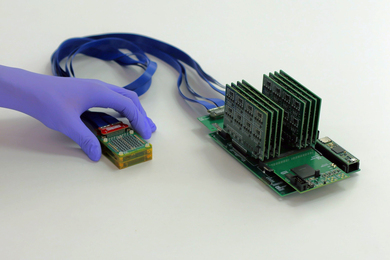Today in the US District Court for the District of Columbia, MIT filed a motion to intervene in a pending case under the Freedom of Information Act that is seeking the disclosure of United States Secret Service documents related to Aaron Swartz.
In its motion, MIT asked the court to establish a process by which MIT could review and propose redactions to any such documents prior to their release. With this motion MIT does not oppose the release of these documents, but seeks only to redact information that could threaten the safety and privacy of its employees, or that could threaten the security of MIT’s computer network.
In order not to unduly delay the FOIA case, MIT has requested that an expedited hearing on this matter take place on or before July 25.
The process MIT proposes in this motion is substantially the same as the one that was ordered by the US District Court for the District of Massachusetts in May with regard to documents at issue in “US v. Swartz.”
MIT President L. Rafael Reif, in a March 19 letter to the MIT community, announced that MIT would release its own set of documents related to “US v. Swartz” at the same time that it released a report on MIT’s involvement in the case — and that those documents would be redacted to remove any information that might compromise employee privacy or network security. Reif cited his responsibility “to protect the privacy and safety of those members of our community who have become involved in this matter in the course of doing their jobs for MIT, and to ensure a safe environment for all of us who call MIT home.”
The report on MIT’s involvement in the Swartz case is being conducted independently by MIT Professor Hal Abelson. In May, Abelson wrote to The Tech, MIT’s student newspaper, to say that the report would be submitted this summer. That schedule is on track: President Reif is expecting to release the report this summer.
Update added July 20: Yesterday, JSTOR filed a similar request with the Court.
In its motion, MIT asked the court to establish a process by which MIT could review and propose redactions to any such documents prior to their release. With this motion MIT does not oppose the release of these documents, but seeks only to redact information that could threaten the safety and privacy of its employees, or that could threaten the security of MIT’s computer network.
In order not to unduly delay the FOIA case, MIT has requested that an expedited hearing on this matter take place on or before July 25.
The process MIT proposes in this motion is substantially the same as the one that was ordered by the US District Court for the District of Massachusetts in May with regard to documents at issue in “US v. Swartz.”
MIT President L. Rafael Reif, in a March 19 letter to the MIT community, announced that MIT would release its own set of documents related to “US v. Swartz” at the same time that it released a report on MIT’s involvement in the case — and that those documents would be redacted to remove any information that might compromise employee privacy or network security. Reif cited his responsibility “to protect the privacy and safety of those members of our community who have become involved in this matter in the course of doing their jobs for MIT, and to ensure a safe environment for all of us who call MIT home.”
The report on MIT’s involvement in the Swartz case is being conducted independently by MIT Professor Hal Abelson. In May, Abelson wrote to The Tech, MIT’s student newspaper, to say that the report would be submitted this summer. That schedule is on track: President Reif is expecting to release the report this summer.
Update added July 20: Yesterday, JSTOR filed a similar request with the Court.






